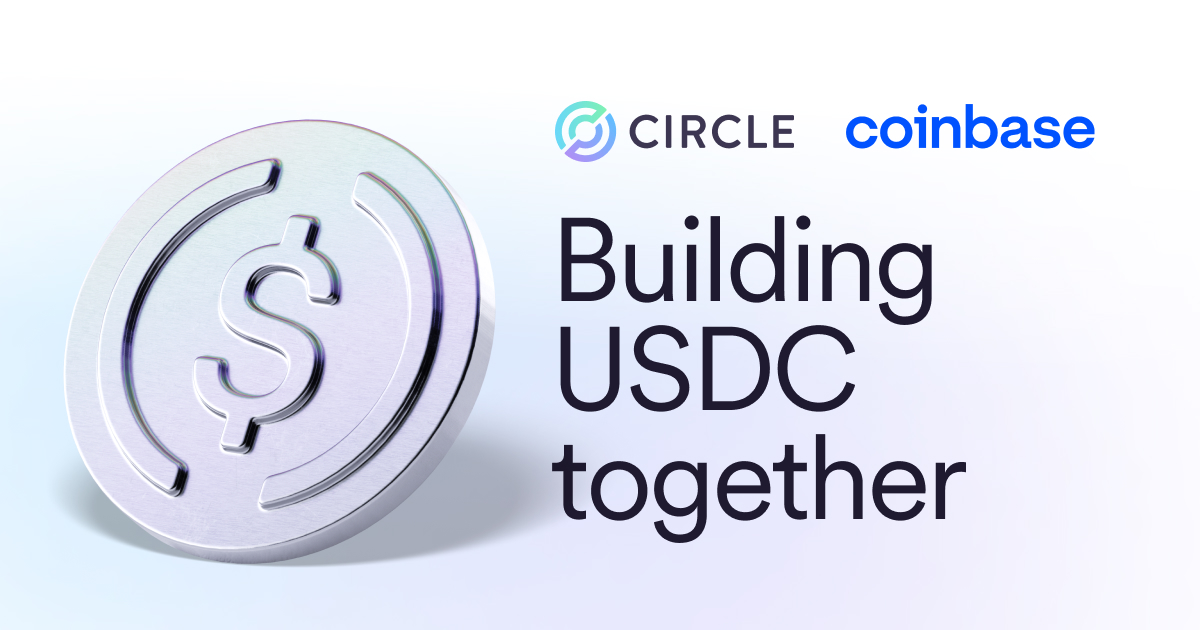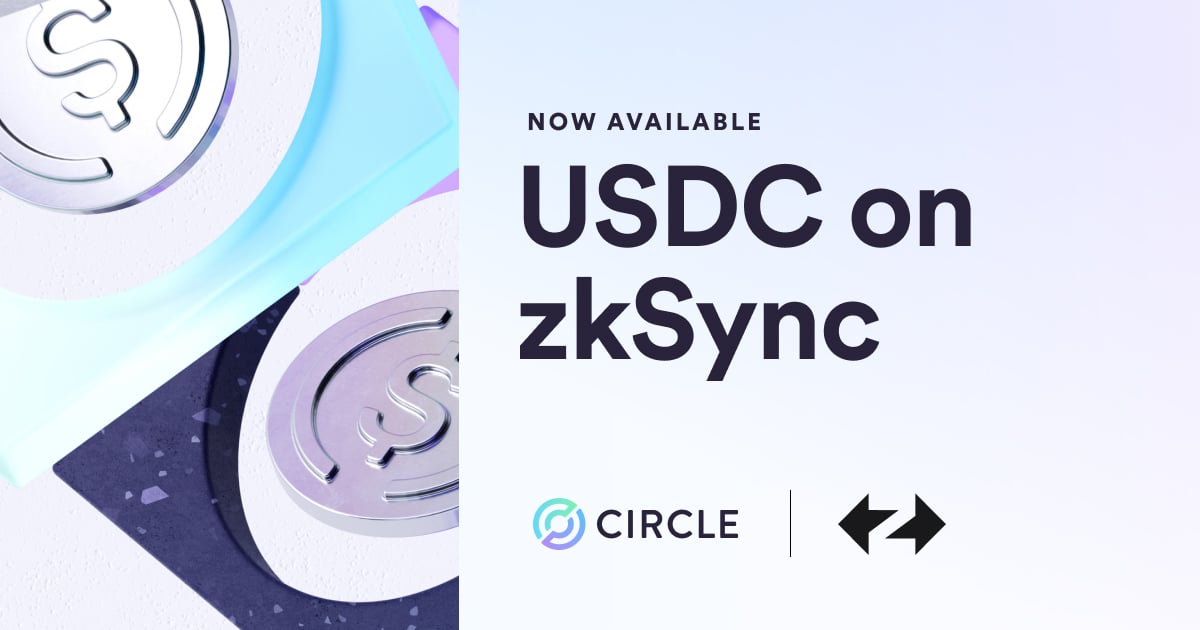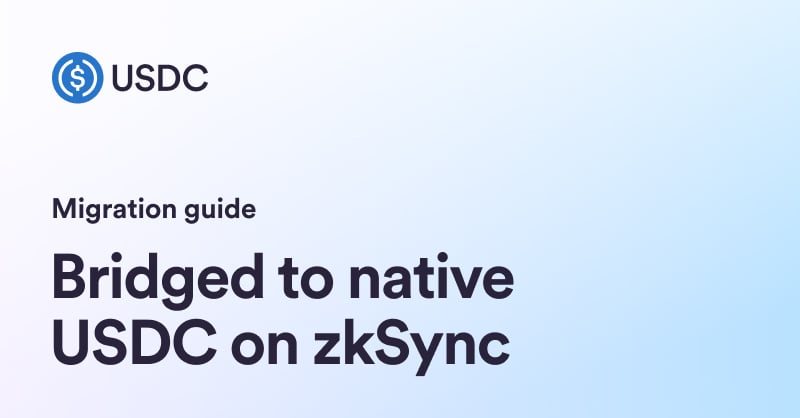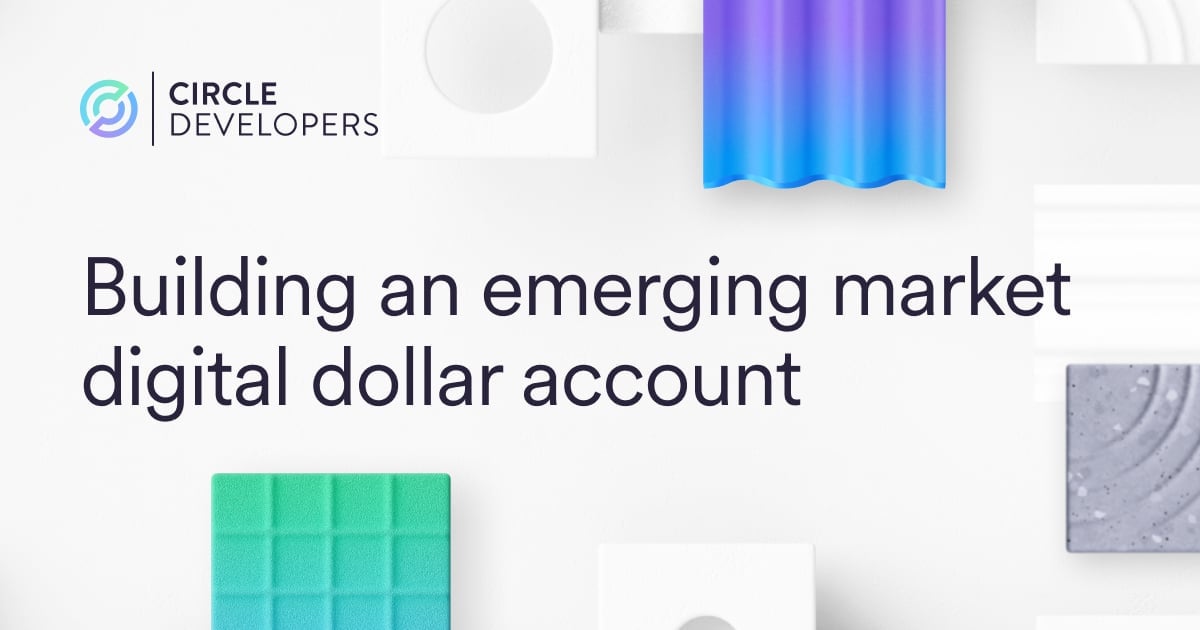
TL;DR: USDC is launching on 6 new blockchains; Coinbase is increasing its support for stablecoins with an investment in Circle; Circle will take full control over USDC issuance and governance; Coinbase and Circle will also maintain a commercial relationship.
By Jeremy Allaire, CEO Circle and Brian Armstrong, CEO Coinbase
Five years ago, we came together to jointly launch USDC with the idea that stablecoins could become a critical building block in creating a new financial system.
Since then, stablecoins have proven to be a critical element of the crypto economy, enabling users around the world to get easy access to U.S. dollars and other currencies with the benefits of crypto – a fast, reliable, secure and programmable exchange of value.
USDC has an essential role in serving the public interest when it comes to updating the financial system. Having established itself as one of the most widely adopted and trusted digital dollars, USDC has enabled millions of users around the world with the ability to quickly access and move money at scale. USDC has grown from an idea to the second largest stablecoin in the world.
The objective of stablecoins is to be usable 24/7, widely available, stable, and backed 1:1 with transparent and safe reserves. USDC is designed with these principles – and today we’re pleased to announce the next chapter in our work together. This chapter speaks to our joint belief in the immediate and long term impact of stablecoins and, in particular, unlocking the next phase of utility for USDC.
Growing the ecosystem: Launching USDC on 6 new blockchains
Blockchain innovation has continued at a rapid pace, with breakthroughs in speed, security and scalability. USDC will be launching on 6 new blockchains between September and October, bringing multi-chain access of USDC up to 15 to continue accelerating USDC’s momentum with developers around the world.
Support for new chains allows USDC to better serve a growing number of businesses, applications, and developer communities who are choosing USDC as the on-chain dollar.
The next chapter for USDC governance
Circle and Coinbase, the founding companies behind Centre Consortium, a jointly managed self-governance consortium for USDC, have agreed that with growing regulatory clarity for stablecoins in the U.S. and around the world, the requirement of a separate governance body like Centre, is no longer needed. Centre will no longer exist as a stand-alone entity and Circle will remain as the issuer of USDC, bringing any Centre governance and operations responsibilities in-house. The new structure will streamline the operations and governance, and enhance the direct accountability of Circle as the issuer, including holding all the smart contract keys, complying with regulations on governance of reserves and enabling USDC on new blockchains.
Building together
As part of this next chapter, Coinbase and Circle have reached a new agreement. Reflecting Coinbase’s belief in the fundamental importance of stablecoins to the broader crypto economy, Coinbase is taking an equity stake in Circle. This means that Coinbase and Circle will now have even greater strategic and economic alignment on the future of the financial system. Coinbase is committed to the long term success of the stablecoin ecosystem and USDC, specifically.
Coinbase and Circle will continue to generate revenue from USDC reserves interest income. Under the parties’ new arrangement, this revenue will continue to be shared based on the amount of USDC held on each of our platforms, and additionally we will now equally share in interest income generated from the broader distribution and usage of USDC.
We believe that stablecoins can advance the real-world utility of crypto and help make the global financial system more open and inclusive. Together, we look forward to unlocking additional value by growing the USDC ecosystem, circulation and global adoption.



